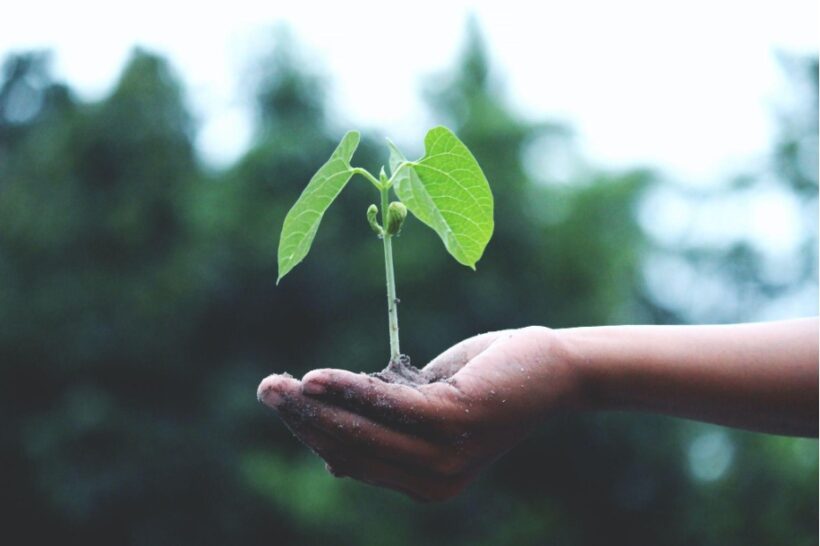
By Adrian Johansen
Sustainability is one of the most important considerations of modern business. Not only can supporting sustainability help reduce the impact of climate change, but showing a commitment to clean practices can also create new opportunities and customers.
Modern consumers want green products. Over 60%, in fact, say they look for products that have a low environmental impact or are made from recycled materials. Another 94% of consumers say that sustainability is desirable.
But a truly effective sustainability approach will go behind mere attempts to draw in customers. Audiences know when businesses aren’t being authentic, so to ensure that your green efforts produce results, you need to be intentional in your approach.
Here, we explore what this means and how you can go beyond the basics of sustainability to positively impact the environment.
What it means to be intentional when it comes to sustainability
Industry is one of the largest factors contributing to the climate crisis, accounting for 23% of global greenhouse emissions. With numbers like these, businesses the world over need to stop what they’re doing and instead focus on sustainability. Without clean, renewable energy and waste reduction policies, humanity will experience drops in the quality and cleanliness of life.
But many businesses these days only do the basics. Half-hearted or inauthentic efforts at reducing waste might do some good, but they won’t make the kind of difference we need. These include actions like:
- Creating paperless options
- Making vague statements about promoting sustainability
- Making a small donation to an environmental non-profit
Certainly, all these things can help, but being intentional when it comes to sustainability means looking for ways to introduce sustainability and efficiency into every business process. For example, a paperless option can be a great way for customers to feel like they aren’t wasting resources when doing business with you, but intentional sustainability takes it a few steps further. Intentional sustainability would require you to assess the carbon output of your digital processes, as well, and ensure that the power you’re using comes from renewable or clean sources.
The carbon footprint of our gadgets equals around 3.7% of greenhouse gas emissions, a fact that makes focusing on sustainability necessary even when it comes to user experience and design. Being intentional means going beyond the basics, exploring your options, and innovating for sustainability and efficiency across an organization.
Being intentional also means moving from damage mitigation to making a real positive impact.
How to positively impact the environment
Every business can take certain measures to become more eco-friendly. Simple steps include near sourcing and running more efficient supply lines. However, there are ways you can actually give back rather than cut down on your environmental impact. This positive spin is a key element of an intentional approach, one that takes every opportunity to streamline the efficiency of your products and policies.
But how can you develop intentional, sustainable positive results while keeping operational costs low?
Fortunately, that is easier than ever with developments in clean energy. The cost of large-scale solar projects, for instance, has fallen 85% in a decade. Recent history has seen renewables become the cheapest source of energy, and meanwhile, access to green resources has expanded greatly with the awareness and importance placed on the issue.
These conditions have made now the perfect time for businesses to take sustainability to the next step. With the majority of consumers dedicated to and looking for sustainability from the companies they buy from, businesses can afford to make the transition.
These are just a few considerations for how you can positively impact the environment with intentional sustainability efforts:
- Convert to 100% sustainable materials, from textiles to fuels.
- Minimize energy consumption with smart building management tools and upgraded facilities.
- Become 100% energy independent through the use of solar, hydrothermal, and wind power.
- Reduce waste through recycling programs and incentives.
- Make consistent donations to conservation and restoration nonprofits.
Instituting policies like these across an organization can transform your sustainability efforts from basic to world-changing. Zero-waste processes are the future, and getting started now will only help you adapt to customer needs and expectations as greater sustainability becomes the standard.
Adopt an intentional effort to improve society and the planet to ensure that your business completes any transition in regulations with ease. Additionally, you’ll gain a wealth of attention from customers pleased with the effort.
Intentionally improve business
The push towards sustainability has been driven by a worldwide rise in ethical consumerism. Customers now perceive new value from businesses that make the effort to clean up their processes and support a greener economy. Since the vast majority of people recognize the importance of sustainability, more businesses are heeding the call than ever before.
But your own green transition should not come out of a sense of trendiness or fear of missing out. Instead, be intentional in your efforts. Go paperless, then go further. Switch to renewable energy sources. Power your email databases, servers, and even factories with green energy. Partner with nonprofits.
Intentionally improve the way your business functions to set a new standard in sustainability. Doing so is not only ethically right but financially beneficial. Clean business can mean cost savings, higher conversion rates, and a cleaner planet. Make an intentional effort to improve sustainability in your business now to better reap the rewards.
Image Source: Pexels
Adrian Johansen strives to prioritize sustainability and ethics in all she does. To that end, she writes in multiple fields, applying and promoting sustainable methods and ideals as much as possible. You can find more of her writing here.



Leave a Reply